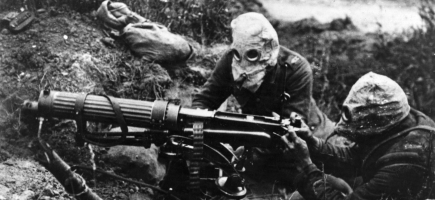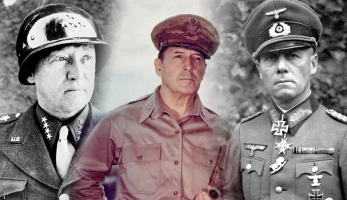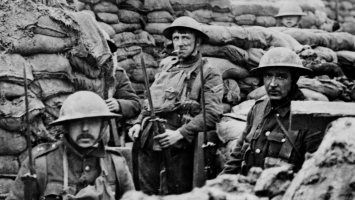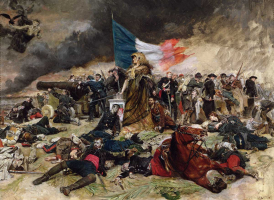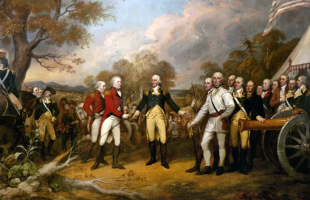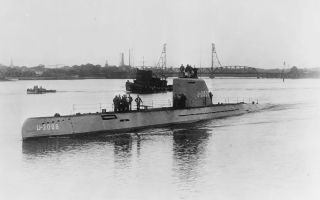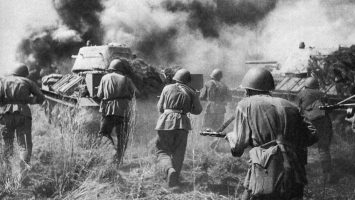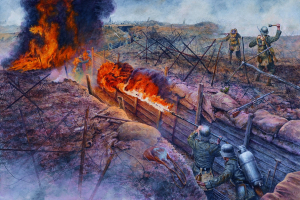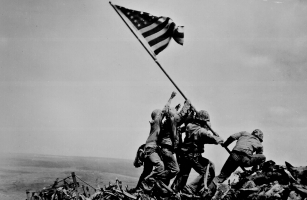Top 15 Most Legendary People From World War I
The Central Powers of Germany, Austria-Hungary, the Ottoman Empire, and Bulgaria fought against the Allies, a coalition of numerous countries, most notably ... read more...Great Britain, France, Russia, Japan, and Italy, in World War I. The Great War, which began in July 1914 and lasted more than four years, claimed the lives of 13 million people in addition to an estimated 8.5 million troops. A small number of the more than 65 million soldiers that were deployed during the war were also well-known, especially at the time. Here are the most legendary people from World War I that you should not miss!
-
First of all, one of the most legendary people from World War I is Ernest Hemingway. When World War I started in Europe in 1914, Ernest Hemingway was in High School and President Woodrow Wilson had ensured that America stayed neutral in the conflict. However, in April 1917, America decided to join the allies and Hemmingway tried to enlist in the Army once he turned 18. He was however turned down by the US Army, Navy, and Marines, owing to the poor vision in his left eye. Wanting to be part of the action, Hemmingway tried to sign up as a Red Cross volunteer, where he was accepted in December 1917 and signed on as an ambulance driver in Italy.
Ernest Hemingway was a senior in high school when World War I broke out in Europe in 1914, and President Woodrow Wilson made sure that the United States maintained its neutral position. Hemmingway attempted to register in the Army after turning 18 but was rejected since America had decided to join the allies in April 1917. However, due to his left eye's poor eyesight, he was rejected by the US Army, Navy, and Marines. Hemmingway attempted to volunteer with the Red Cross to take part in the action; he was accepted in December 1917 and agreed to work as an ambulance driver in Italy. His magnificent book A Farewell to Arms was inspired by Hemingway's injury near the Piave River in Italy, his subsequent rehabilitation at a hospital in Milan, as well as his friendship with his nurse Agnes von Kurowsky.
Lifespan: July 21, 1899 – July 2, 1961
Nation: United States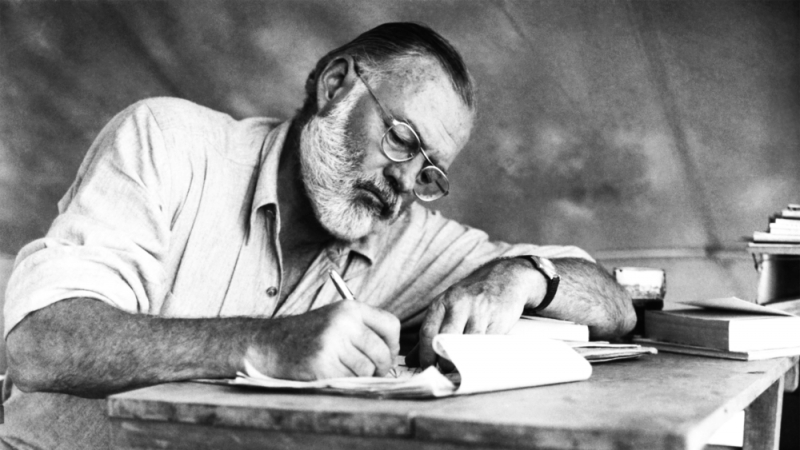
Photo: https://bookish.vn/ 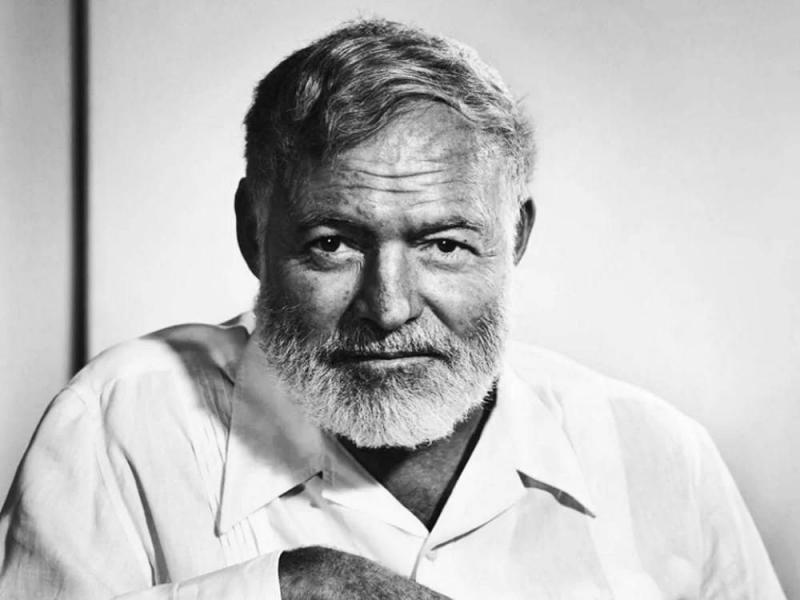
Photo: https://trainghiemsong.vn/ -
Mata Hari, who was born Margaretha Geertruida Zelle in the Netherlands, is a classic example of a charming female spy. Mata Hari relocated to Paris in 1905 following a failing marriage to an Army officer who was more than 20 years her senior. She here became a French diplomat's mistress. While visiting Malaysia with her ex-husband, Margaretha picked up a basic understanding of Indian and Javanese dances and started earning a career by performing exotic dances. She created her stage moniker, "Mata Hari", which in local Indonesian means "eye of the day," to complete her spectacular metamorphosis from military wife to the siren of the East.
As soon as Mata Hari became well-known, dance halls and opera theaters were full. Politicians and senior military figures from numerous nations were among her admirers. Georges Ladoux, the commander of the French military intelligence during World War I, made Mata Hari a tempting offer to spy for France in 1916 as she was getting close to 40 years old. She intended to gain access to the German high command through deception using her contacts. She was identified as a German spy in the intercepted German communiqués by the French, however, the specifics of her espionage actions are still unknown. She was identified as a double agent as a result and was captured in February 1917. Her military trial was rife with bias and circumstantial evidence, and she was charged with disclosing the new tank-carrying weapon developed by the Allies. Mata Hari was found to be responsible. On October 15, 1917, she was shot by the firing squad. Just before she died, she blew the soldiers a kiss and refused to wear the blindfold.
Lifespan: August 7, 1876 – October 15, 1917
Nation: Netherlands
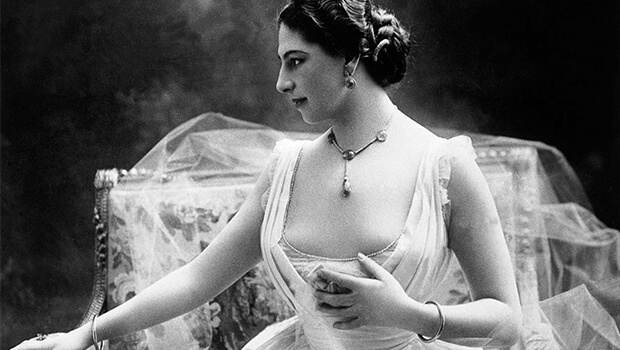
Photo: https://nghiencuuquocte.org/ 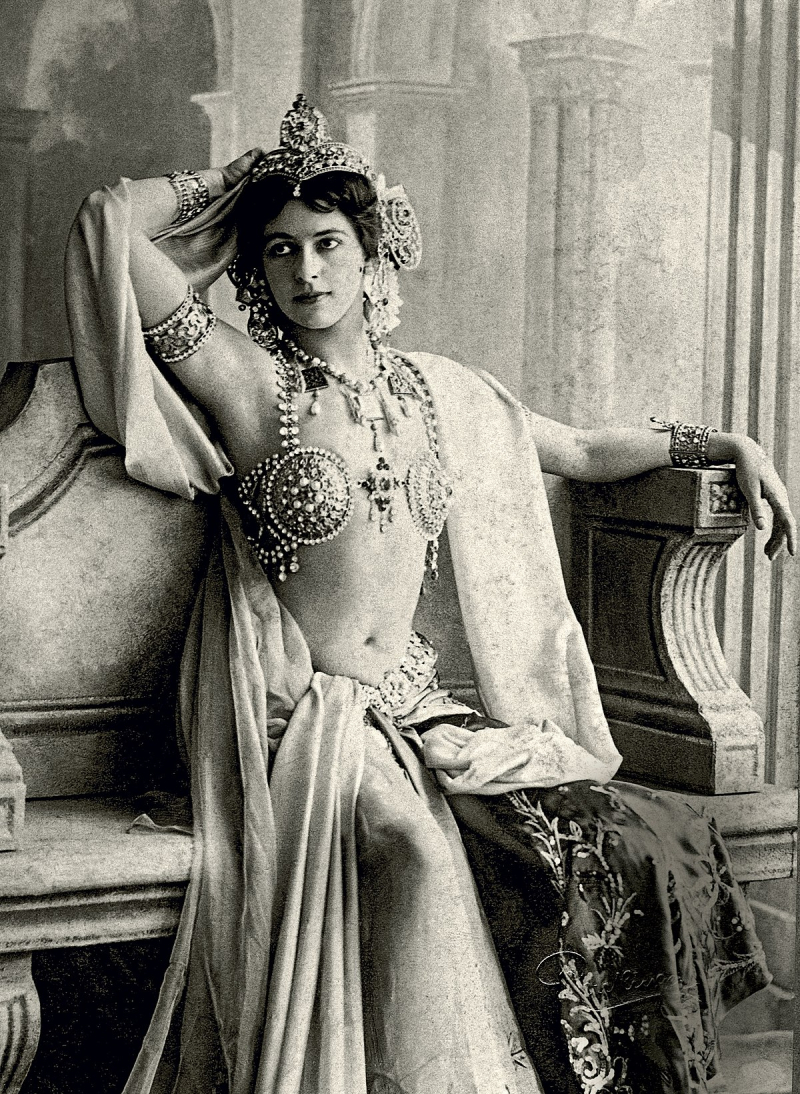
Photo: https://en.wikipedia.org/ -
Gavrilo Princip, a teenager, carried out the assassination of Archduke Franz Ferdinand and his wife Sophie at Sarajevo on June 28, 1914, setting off the biggest flashpoint of the 20th century. The two shots he fired would alter the course of human history, setting off a terrible series of occurrences that would eventually result in the start of the First World War, which would result in 15 million dead in addition to numerous other effects. Princip, a proponent of South Slavic nationalism, sought to end Austro-Hungarian control in the Balkans and bring all South Slavs together into one federal state. Being a Bosnian Serb, he believed Serbia's duty to support this cause as a free Slavic state. Princip joined and received training from the Serbian State-backed secret nationalist group Blank Hand.
He would be one of three men sent by Dragutin Dimitrijevic, the leader of the Black Hand and the head of the Serbian Army's intelligence department, to kill the Archduke in 1914. On June 28, Princip and his accomplices lined Appel Quay along the path that the Archduke's cavalcade was supposed to traverse. After Nedjelko Cabrinovic's initial attempt at assassination was unsuccessful, Princip saw an opportunity to assassinate Franz Ferdinand, the presumed successor to the Austro-Hungarian Empire, when he returned from the city hall. The incident would force Europe into the July Crisis, a diplomatic crisis that would eventually lead to World War I. In Sarajevo, Princip would stand trial and receive a 20-year prison term. In 1918, he pass away in a hospital close to his prison.
Lifespan: July 25, 1894 – April 28, 1918
Nation: Austrian-occupied Bosnia and Herzegovina
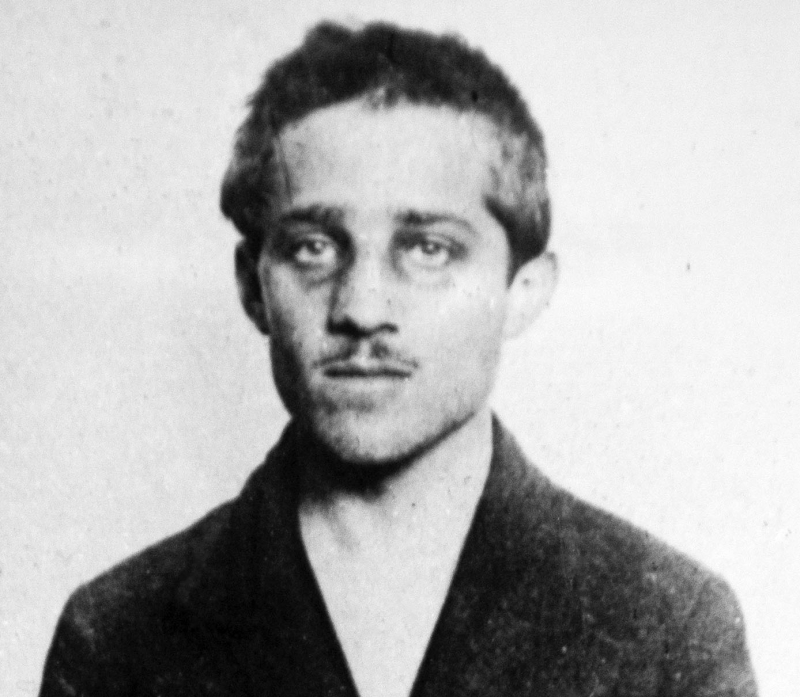
Photo: https://commons.wikimedia.org/ 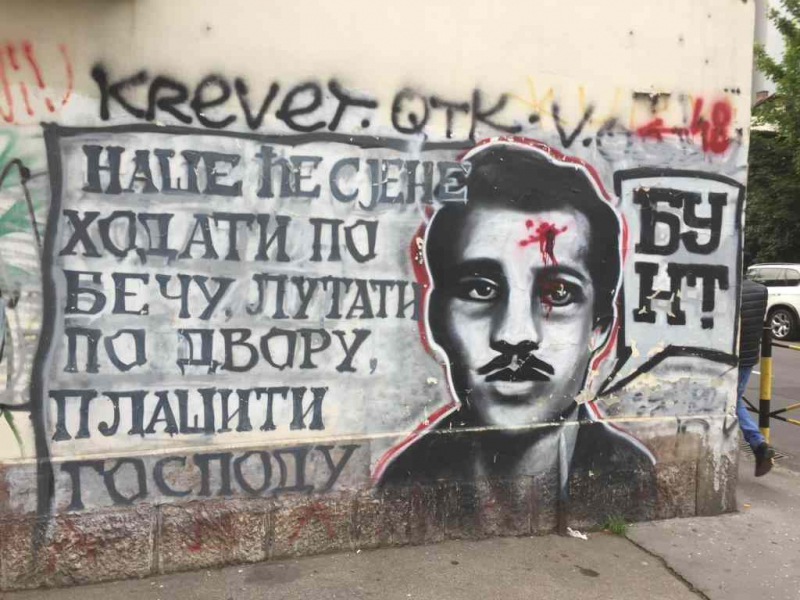
Photo: https://exyusite.net/ -
Grigori Rasputin, a Siberian peasant with claims to prophesy and healing powers, is one of the most legendary people from World War I. When he was 18 years old, he visited the monastery at Verkhoturye, where he learned about the clandestine Khlysty (Flagellants) sect. After a few months, Rasputin departed, got married, and had three kids. But the union did not satisfy him, and he went on the road, visiting Greece, the Middle East, and Jerusalem. Due to his purported healing abilities, Rasputin finally found himself in the court of Czar Nicholas II after traveling to St. Petersburg in 1903. Aleksey Nikolayevich, the only son, and heir to the throne of the royal line had hemophilia, which caused him and his family a tremendous deal of suffering. Rasputin gained the ardent support of Empress Alexandra and a position at the very top of Russian society as a result of the boy's remarkable recovery.
Rasputin immediately became the talk of the town due to his licentious behavior, constant drinking, and other eccentricities. His apparent mesmerization of the Royal family alarmed many people. Rasputin opposed Russia's entrance into the war when it first broke out in 1914 and foresaw calamity for the nation. Czarina Alexandra and her advisor Rasputin were in charge of the domestic affairs following the Czar's appointment as Commander in Chief in 1915. Rasputin was thereafter accused of being a German spy, a crazy monk, and a corrupter of the Imperial family. This further infuriated a lot of people. Rasputin was the target of numerous attempts to murder him, but none were successful until 1916 when close friends of the Royal family plotted to do him. Rasputin's final prophecy had still to come true; just before he passed away, he wrote to Nicholas II and said that if he were slain by government agents, the Russian people would kill the entire imperial dynasty.
Lifespan: January 22, 1869 – December 30, 1916
Nation: Russia
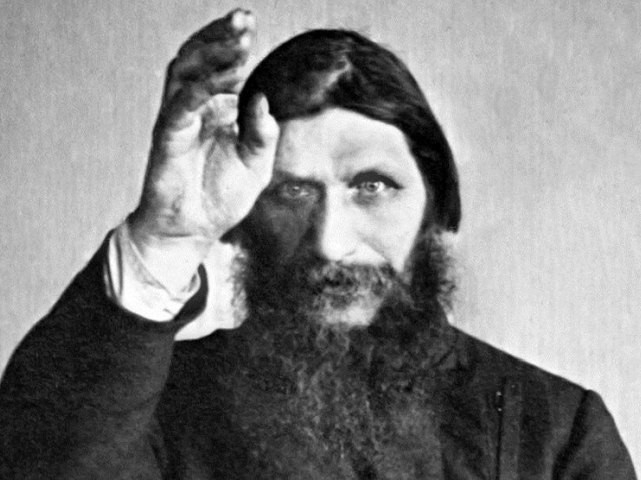
Photo: https://khoahoc.tv/ 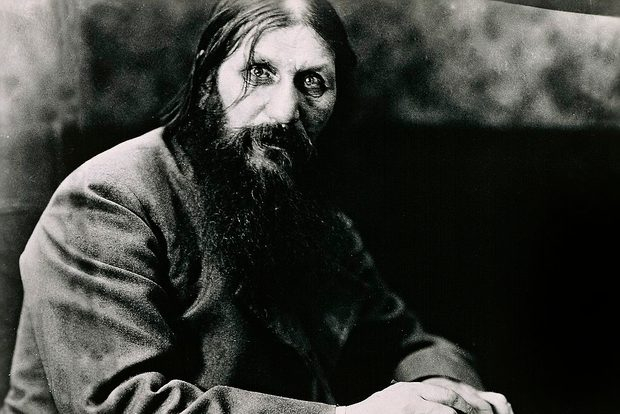
Photo: https://www.historyextra.com/ -
Fighter pilot Manfred von Richthofen, well known as the "Red Baron", served in the German Air Force. He was an ace pilot who overcame all obstacles to win 80 air battles during World War I, making him a flying legend. Richthofen adopted the title Freiherr after being born into a noble family (equivalent to Baron in English). He afterward painted his plane crimson while flying. As a result, it was visible from a distance, earning Richthofen the moniker Red Baron. Richthofen, who was originally a cavalryman, served on both the eastern and western fronts. Manfred was reassigned to the Signal Corps, where he would soon become weary of trench life, as trench warfare took hold on the western front and rendered cavalry irrelevant. He signed up for the Air Service in 1915 as an observer, where he spent the ensuing few months learning to fly. In 1916, he was one of the initial recruits for fighter squadron Jagdstaffel 2.
Manfred made a name for himself as a fighter pilot immediately on, rising through the ranks to command Jasta 11 and later Jagdgeschwader 1, a bigger fighter wing unit better known as "The Flying Circus" because of the vivid colors of its aircraft, in 1917. Richthofen downed 80 aircraft in his 19 months (1916–1918) of combat flying, earning him a national hero. During World War I, his aircraft was shot down close to Vaux-sur-Somme, resulting in his demise on April 21, 1918.
Lifespan: May 2, 1892 – April 21, 1918
Nation: Germany

Photo: http://nghiencuuquocte.org/ 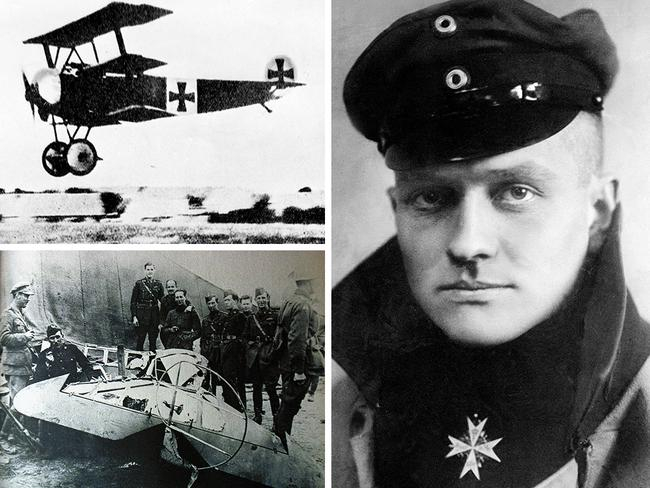
Photo: https://www.theaustralian.com.au/ -
The "Harlem Hellfighters", an all-black National Guard company, was among the first American forces to enter Europe during World War I, and Henry Johnson was their most well-known soldier. Before being dispatched to bolster the French army's thin numbers, Johnson and his fellow African American troops worked as unskilled laborers throughout the early stages of the conflict.
Johnson and Needham Roberts, another "Hellfighter", were on watch duty in the Argonne Forest on May 14, 1918. A group of 20 German soldiers attacked the pair shortly after two in the morning. Roberts' wounds were so serious that he was unable to shoot or stand up, but Johnson held on and fought back using hand grenades and his rifle. Both men were shortly injured. He was shot multiple times, but he continued to fight back until his weapon jammed, at which point he used it as a club and fought hand to hand until it was destroyed. Johnson pulled out his only surviving weapon, a bolo knife, and began slashing and stabbing many soldiers until the raiding party finally withdrew when he saw that the Germans were attempting to capture Roberts. When the fighting was over, Johnson had caused at least 12 German losses and had been wounded 21 times with guns and bayonets. He and Roberts later shared one of France's highest military medals, the Croix de Guerre, but Johnson's valiant action went unrecognized in the United States until 1996 when he was posthumously handed the Purple Heart. Later, in 2003, he was awarded the Distinguished Service Cross.
Lifespan: July 15, 1892 – July 1, 1929
Nation: America
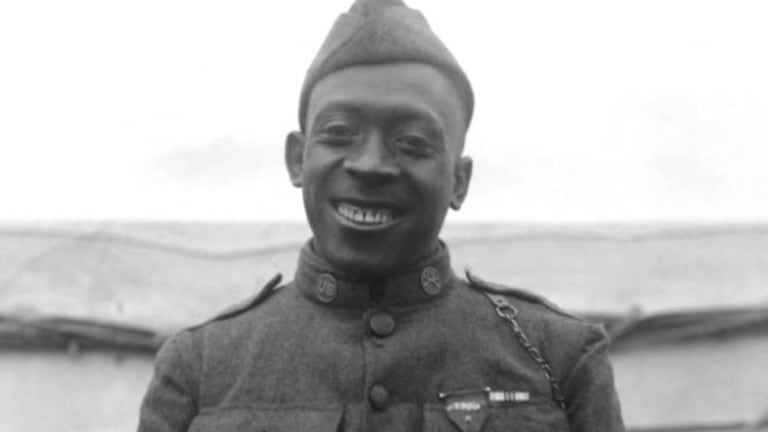
Photo: https://www.history.com/ 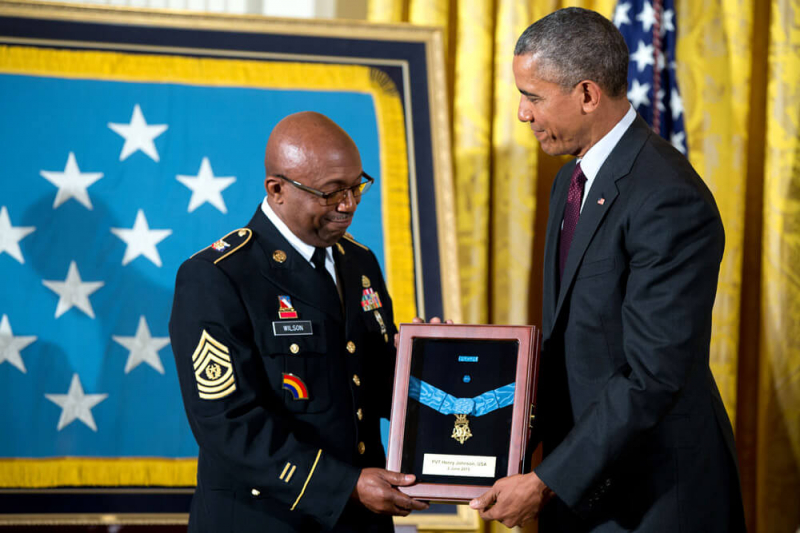
Photo: https://citizen-soldiermagazine.com/ -
Thomas Edward Lawrence was a British archaeologist, army officer, diplomat, and writer who is most known for his liaison work in the Sinai and Palestine campaigns and for supporting the Arab Revolt against the Ottoman Empire. T.E. Lawrence, an architect, and archaeologist, frequently traveled to Egypt and the Middle East before the war, which made him of enormous strategic use after it started. Lawrence was assigned as an intelligence officer in Cairo in December 1914 when hostilities started. The Intelligence had contact with the Emir of Mecca, Sharif Hussein, who was conversing with the British and offered to lead an Arab insurrection against the Ottomans. As the Arab Revolt erupted in 1916, Lawrence was tasked with joining Hussein's son Faisal's Arabian army as a liaison officer. There, he contributed significantly to guerilla warfare against the Turkish lines.
Near the end of the war, the Arab world was freed, but Lawrence's dream of the peninsula becoming a single nation was destroyed. He became disillusioned by the Allied shady deals and Arabian factionalism and fled to England, where he turned down the praises that were extended to him. T.E. Lawrence rose to fame during his lifetime. He authored his battle narrative, The Seven Pillars of Wisdom, advocated for the independence of Arab nations after the war, and served in the Royal Air Force. He became well-known in 1962 thanks to the historical drama "Lawrence of Arabia", which was based on his life and won seven Academy Awards.
Lifespan: August 16, 1888 – May 19, 1935
Nation: Britain
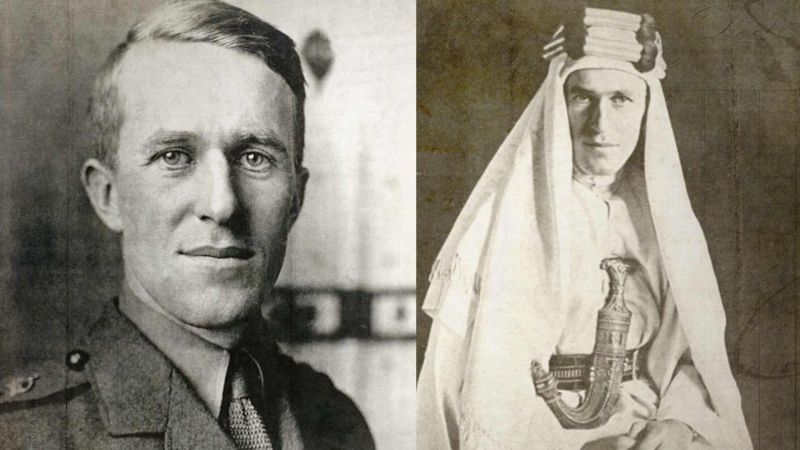
Photo: https://www.basedonatruestorypodcast.com/ 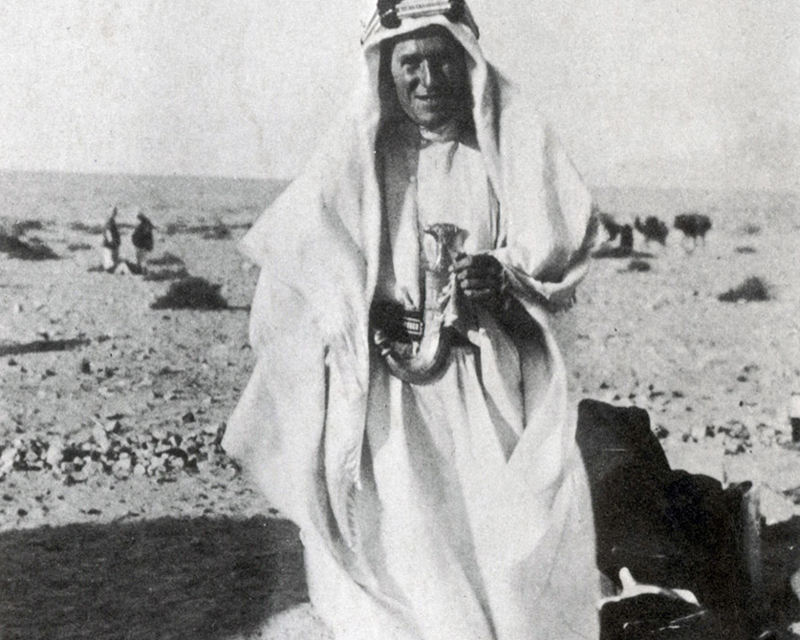
Photo: https://www.nam.ac.uk/ -
Major Charles Whittlesey, an attorney by profession, subsequently rose to prominence as the unyielding leader of the so-called "Lost Battalion", an American regiment that was lost behind German lines. As part of a planned offensive in the Argonne Forest on October 2, 1918, the bookish and spectacular Whittlesey led his men into enemy terrain. His regiment, however, crossed the difficult terrain too quickly as a result of poor communication, and it was soon isolated and encircled by German forces.
The roughly 600-person Whittlesey force dug in and built a shaky defensive line. They spent the following five days evading sniper fire and repelling wave after wave of German onslaught despite being low on food, water, and ammunition. Their men unintentionally started bombarding their position at one point, but Whittlesey deployed a carrier pigeon and was able to stop the onslaught of friendly fire. Later, there was a chance for the Americans to give up, but Whittlesey resisted and fought against bleak odds. On October 8, Allied troops at last arrived and compelled the enemy to flee. Only 194 Americans remained when that happened, including Whittlesey, who was later given the Medal of Honor for his extraordinary bravery and composure under fire. Whittlesey, however, was troubled by the conflict for the rest of his life and eventually killed himself in 1921 by jumping off a ship that was sailing toward Cuba.
Lifespan: January 20, 1884–November 26, 1921
Nation: America
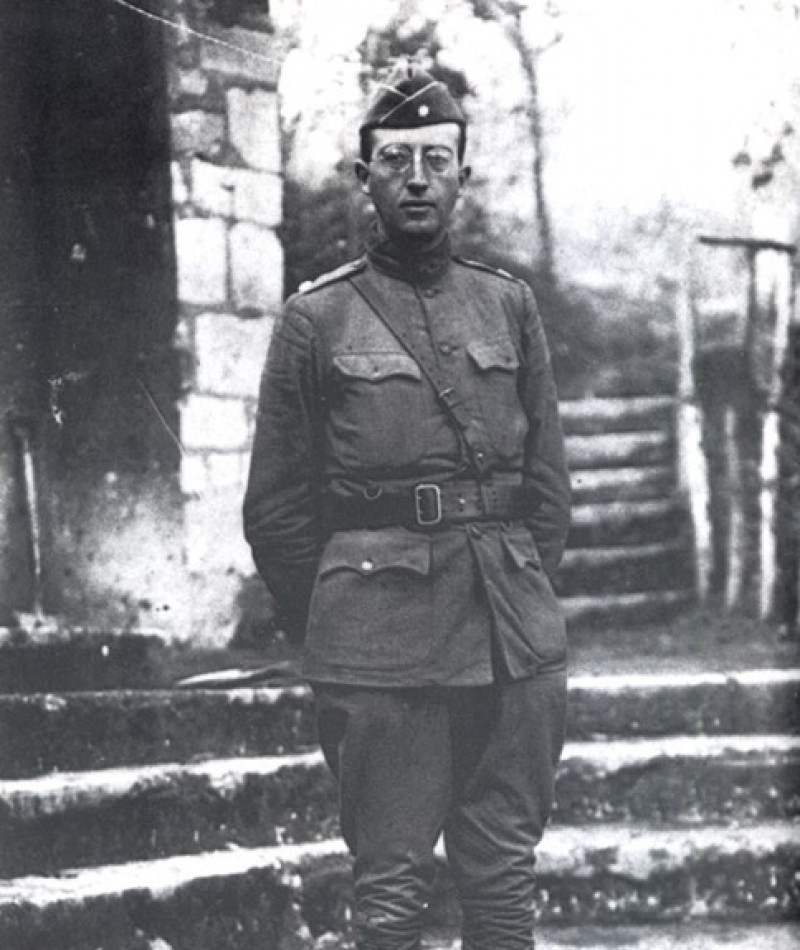
Photo: https://www.cmohs.org/ 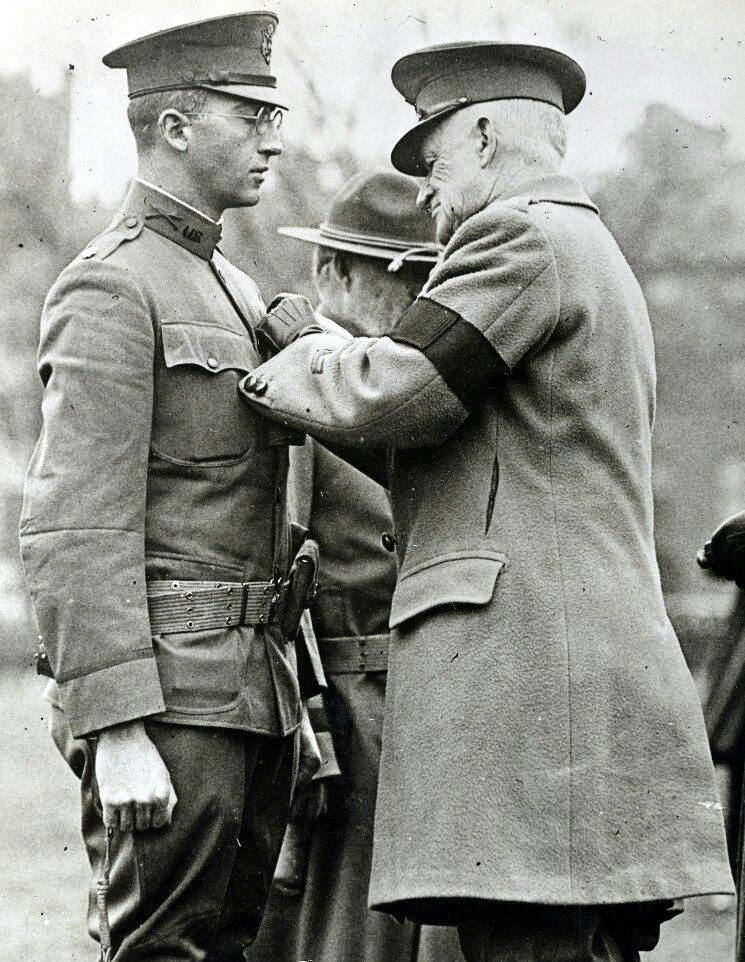
Photo: https://www.pinterest.com/ -
Wilfred Owen, arguably the best poet of World War I, wrote poetry that was breathtaking and critical of the brutality of war. This was in sharp contrast to how the general population at the time perceived war. The first time Owen became interested in poetry was in 1904, while on vacation in Cheshire. Bible scriptures and popular romantic poets of the day, particularly P.B. Shelly and John Keats, were early inspirations for him. When war broke out in the summer of 1914, he was working as a teacher's assistant and teaching English to kids close to Bordeaux, France. He stayed out of the war in the early going, but as it wore on, he began to feel pressured and remorseful, so he went back to England and signed up for the army on October 21, 1915. As a second lieutenant in the Manchester Regiment by the middle of 1916, Owen was serving on the front lines in France. He was admitted to a hospital shortly afterward due to shell shock and forged a close bond with fellow poet Siegfried Sassoon there. Sassoon would have a significant impact on his creative output.
In August 1918, Owen was sent back to the trenches after finishing his therapy. His most productive phase as a war poet began at this point, which included the classic poems "Anthem for Doomed Youth", "Futility", "Strange Meeting", and "Dulce et Decorum Est". During an operation in September, he managed to take down an opposing machine gun post and was given the Military Cross in recognition of his actions. On November 4th, 1918, he was killed in combat while attempting to cross the Sambre-Oise Canal. The Armistice that ended the war was signed exactly one week after this incident.
Lifespan: March 18, 1893 – November 4, 1918
Nation: Britain
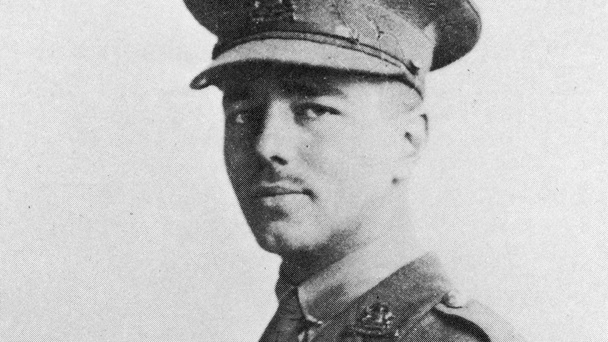
Photo: https://www.bl.uk/ 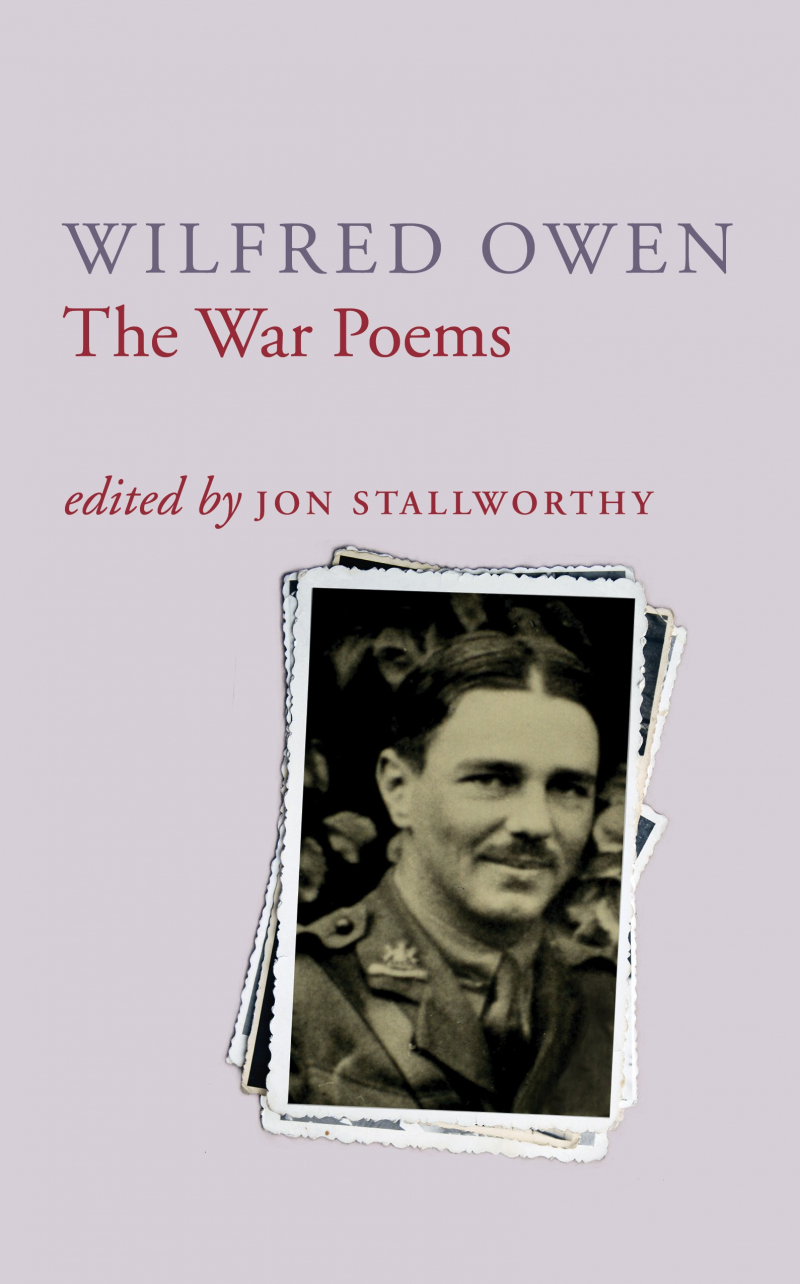
Photo: https://www.amazon.co.uk/ -
Edith Cavell, an English nurse who was also likely a spy, rose to prominence during the First World War for assisting 200 Allied soldiers in escaping German-occupied Belgium. After serving as a governess for a while, Edith Cavell decided to pursue a career in nursing and enrolled as a nurse probationer at the London Hospital in 1896. Dr. Antoine Depage hired Cavell in 1907 to serve as matron at the Berkendael Medical Institute in Brussels, Belgium. Edith was in England when war broke out in 1914, but she quickly went back to her Institute, which the Red Cross had taken over after the German conquest of Belgium.
Edith was part of a squad that provided protection for wounded Belgian and French citizens as well as British and French soldiers from German authorities while carrying out her duties on soldiers from both sides. These individuals were given fictitious documents before being transported from occupied Belgium to the neutral Netherlands. In August 1915, Edith Cavell was detained together with other people for sheltering and helping Allied soldiers. Following her incarceration, both sides' propaganda tried to portray Cavell as either a good nurse or a traitor. For diplomatic purposes, Edith was tried in secret and kept in isolation before being given the death penalty. She was executed by firing squad on October 12, 1915.
Lifespan: December 4, 1865 – October 12, 1915
Nation: Britain
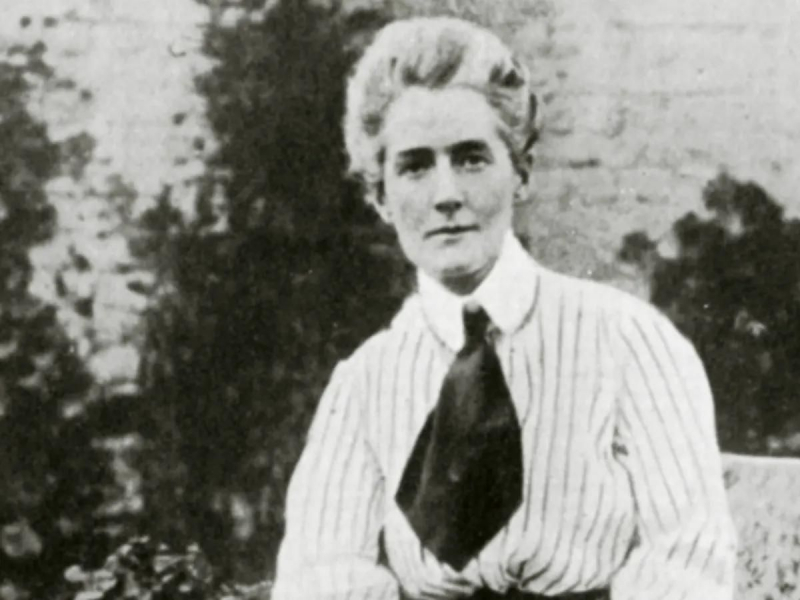
Photo: https://www.theguardian.com/ 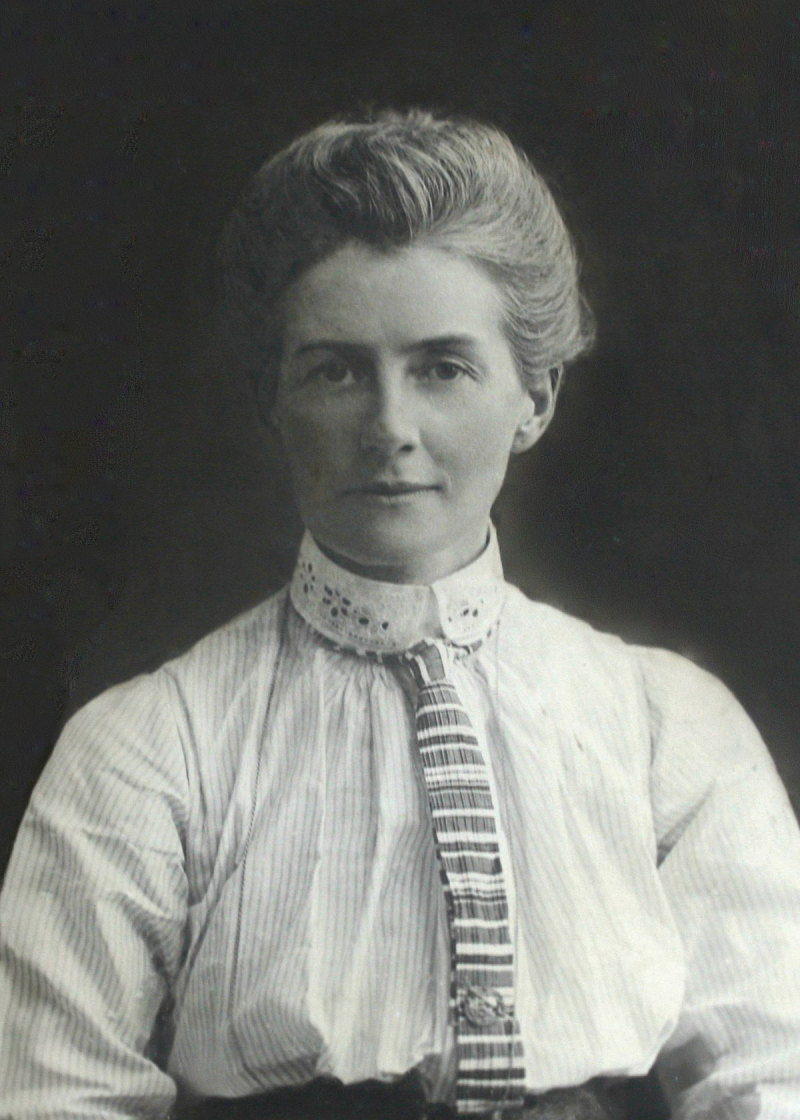
Photo: https://en.wikipedia.org/ -
Paul von Lettow-Vorbeck, a German general and colonial administrator well-known for his remarkable guerilla warfare abilities commanded Germany's modest African force during World War I. He was known as the "Lion of Africa", was nearly unbeatable in World War One, and gained notoriety by taking Mozambique from Portugal despite all odds. Vorbeck honed his talents while fighting the Boxer Rebellion in China in 1900 and leading an expedition to quell the Herero and Hottentot Rebellion in South West Africa between 1904 and 1907. He was named military commander of German East Africa when World War I started, and with a force only one-eighth as large as the enemy, he successfully resisted the British arrival at Tanzania in late 1914.
Lettow-Vorbeck was able to combat and contain a far bigger British, Belgian, and Portuguese army during the war with a force that was never more than 14,000 overall (composed of 3,000 German and 11,000 Askari (local African) men) (estimated at 300,000). Lettow-Vorbeck, who is reputed to have adhered to the warrior's code of chivalry, honor, and respect for the enemy, treated his African Askaris in the same manner as the white Germans under his command, which was unusual at the time. Additionally, he was the only German commander who managed to successfully invade imperial British territory during the conflict. He finally gave over command of his unbeaten army toward the end of November 1914, when the war came to an end.
Lifespan: March 20, 1870 – March 9, 1964
Nation: Germany
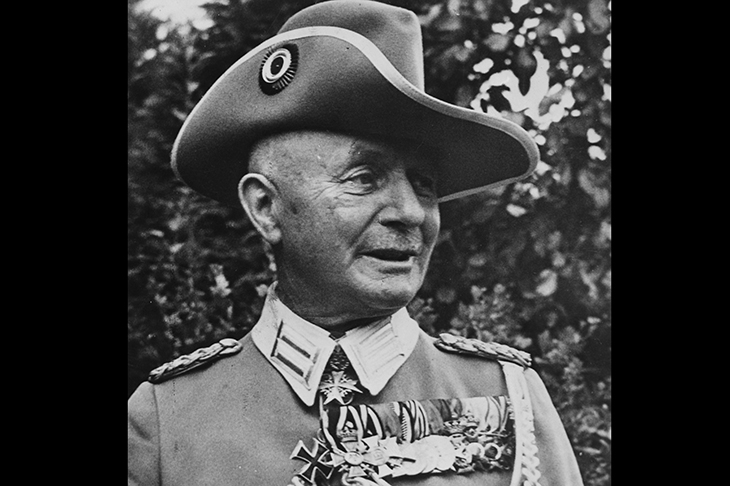
Photo: https://www.spectator.co.uk/ 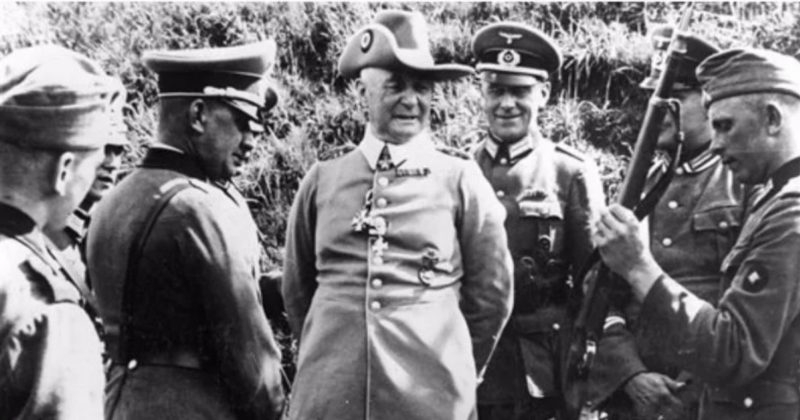
Photo: https://www.warhistoryonline.com/ -
Edouard Izac is one of the most legendary people from World War I. The incredible journey of naval officer Edouard Izac began on May 31, 1918, when a German submarine attacked his ship, the USS President Lincoln, as it was sailing close to the French coast. Most of the crew were able to escape, but Izac was taken prisoner and transported back to Germany on a U-boat. Izac, a German-speaking immigrant whose parents were unaware of it, used his command of the language to gather crucial intelligence about German submarine activities.
Izac later attempted several unsuccessful escape attempts, including even jumping out the window of a speeding train, to deliver this intelligence to the Allies. In October 1918, after he jumped the barbed wire fence around his prison camp and made several stops to draw guard fire so that other convicts could escape, he finally pulled off a successful jailbreak. Before jumping the Rhine River into the security of impartial Switzerland, Izac spent the following several days creeping through the dangerous country and subsisting off the soil. He was given the Medal of Honor in 1920 and went on to serve in Congress for several years, even though his knowledge finally turned out to be of little utility so late in the war. He was the last surviving Medal of Honor recipient from World War I at the time of his passing in 1990.
Lifespan: December 18, 1891 – January 18, 1990
Nation: America
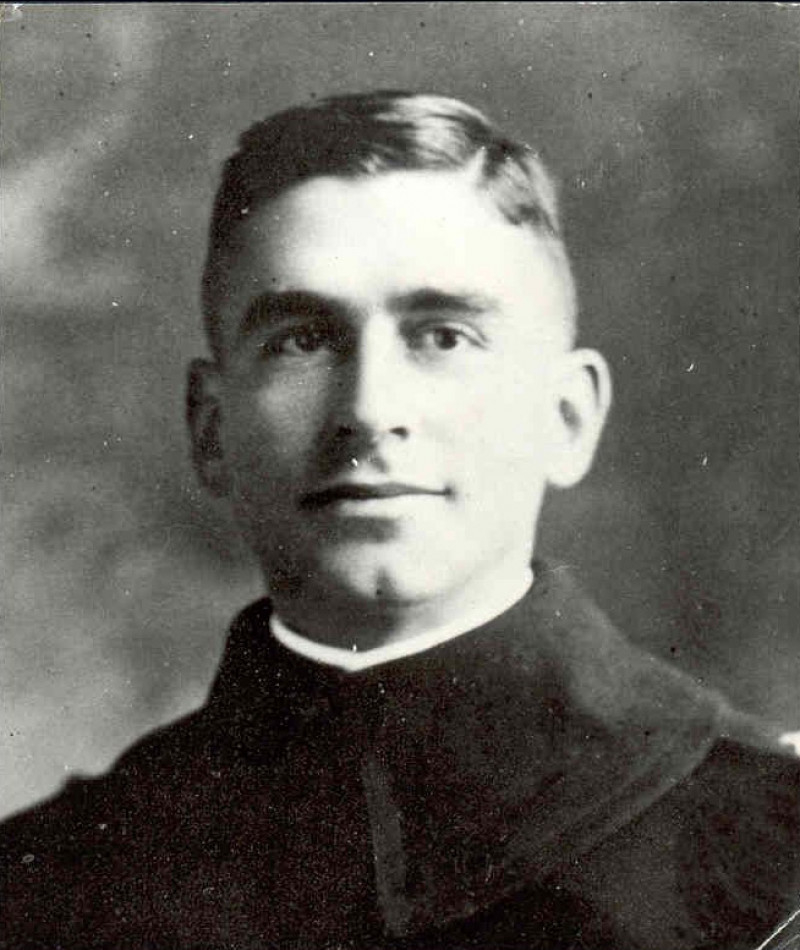
Photo: https://www.cmohs.org/ 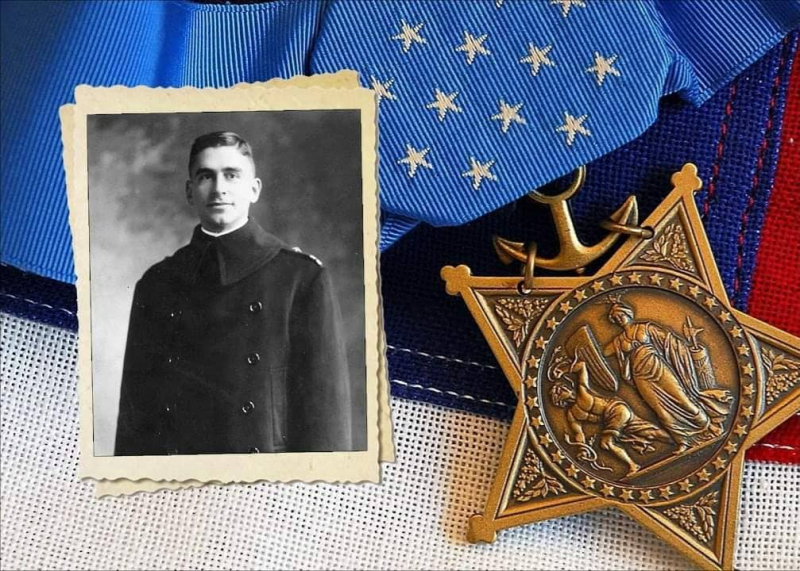
Medal of Honor - Photo: https://www.youtube.com/ -
Francis Pegahmagabow, a highly decorated soldier in Canadian military history, was a skilled marksman and scout. He is credited with killing 378 Germans and capturing 300 more while employing the Ross weapon, which has received significant criticism. He is known as the most proficient and lethal sniper of the First World War. Pegahmagabow, a member of the First Nation, volunteered for duty with the Canadian Expeditionary Force soon after the start of the conflict. He served overseas with the 1st Canadian Infantry Battalion in February 1915 and took part in the Second Battle of Ypres, where he established his name as a sniper and scout. He suffered a left leg injury during the Battle of the Somme in 1916, but he quickly healed to re-join his battalion as they marched into Belgium. Pegahmagabow sent dispatches along the lines during these two fights and was honored with a Military Medal for his valiant services.
Along with his outstanding sniping abilities, Pegahmagabow was lauded for his bravery and heroic deeds. In the Second Battle of Passchendaele, he was instrumental in connecting the units on the 1st Battalion's flank and leading reinforcements, earning a bar to his Military Medal. In the Battle of Scrape in 1918, his company was on the verge of running out of ammunition and at risk of being encircled by the Germans. Going into no man's land, Pegahmagabow risked intense machine gun and rifle fire and returned with enough ammo to keep his station operating. His Military Medal would gain a second bar as a result of this accomplishment. Despite being revered by his fellow soldiers, he was all but forgotten when he got back to Canada. He was nevertheless one of the greatest shooters in World War I.
Lifespan: March 9, 1891 – August 5, 1952
Nation: Canada
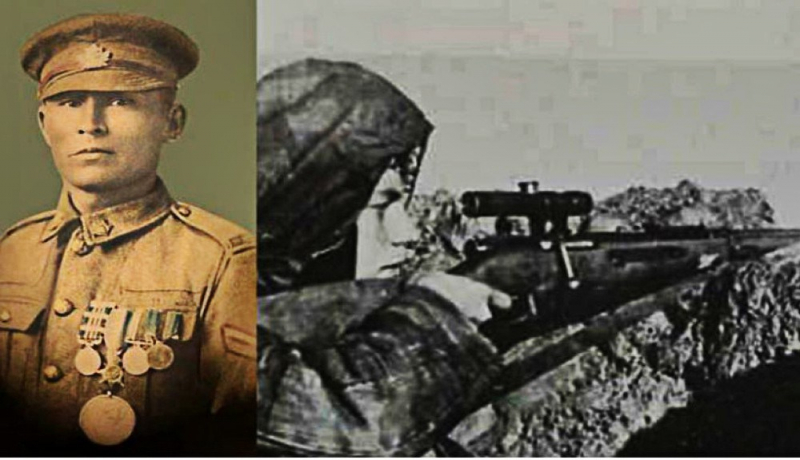
Photo: https://www.thefirearmblog.com/ 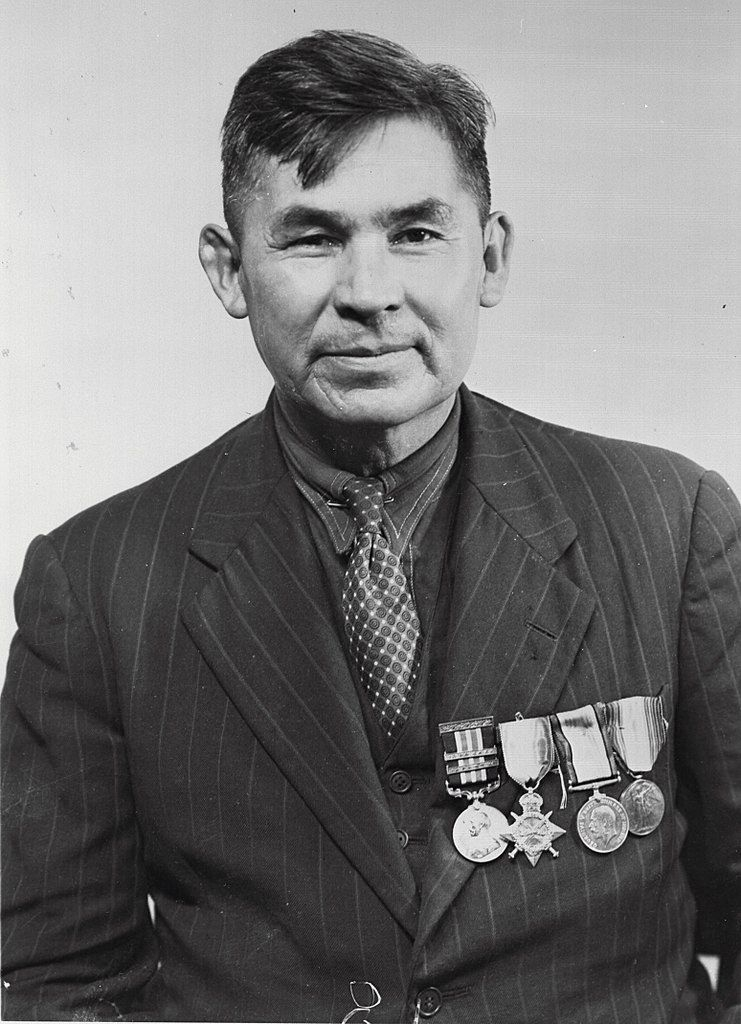
Photo: https://www.thecanadianencyclopedia.ca/ -
Despite entering the war as a conscientious objector, Sergeant Alvin York was reportedly referred to be the "greatest civilian soldier" of World War I. York, a very religious man from Pall Mall, Tennessee, a small mountain hamlet, first rejected going to war because it went against his belief in God. Nevertheless, his appeal was turned down, and in May 1918, he traveled to France with the 82nd Division of the American Army.
On October 8, 1918, during the Meuse-Argonne offensive, York would become well-known. He and about 17 other Americans were under intense fire from enemy machine guns after having just taken prisoners from a German regiment. However, York, a skilled shooter from his days as a turkey hunter, managed to escape unharmed and start taking out the German gunners with his rifle. Nine of the Americans were immediately injured or killed. York pulled out his 45 pistol and shot all six of the enemy who attempted to assault him with bayonets. On his way back to the American lines, he later took more prisoners after having quickly forced the remaining Germans to submit. In total, York and his men seized 132 enemy soldiers, and it's possible that he alone killed 20 German soldiers. He received multiple commendations for his gallantry, including the Distinguished Service Cross and the Medal of Honor, for his services. After the war, the hesitant soldier avoided the spotlight and returned to his Tennessee home, where he started farming. Later, he sought to establish new schools in his neighborhood of mountains.
Lifespan: December 13, 1887 – September 2, 1964
Nation: America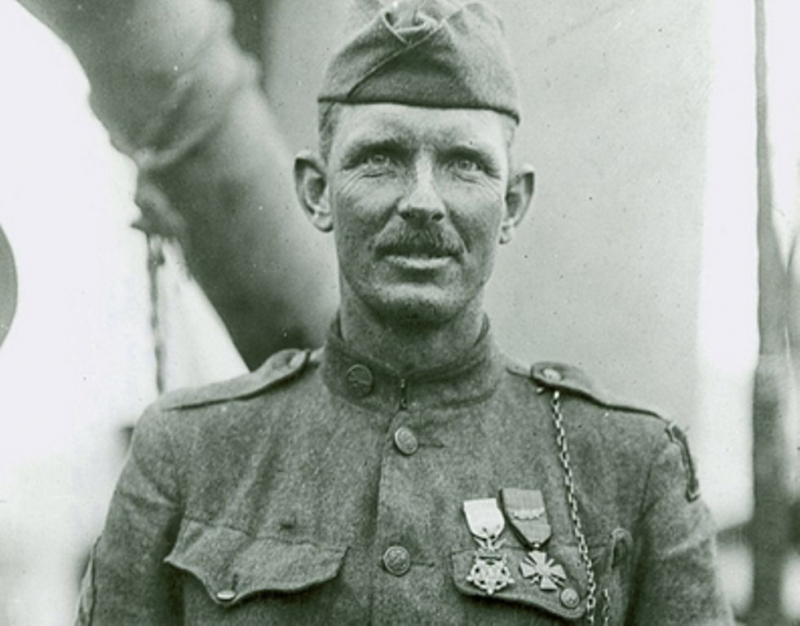
Photo: https://www.thoughtco.com/ 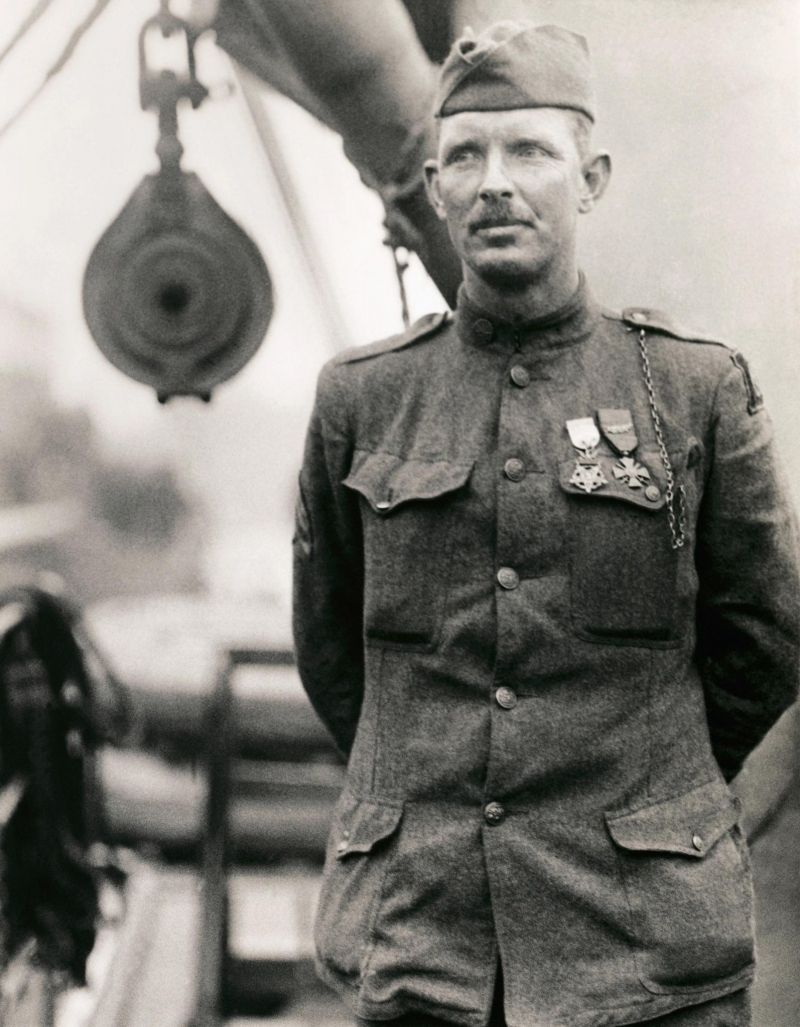
Photo: https://time.com/ -
Frank Luke, a renegade pilot who assaulted German observation balloons used to sight artillery, is regarded as America's best "balloon buster". In July 1918, Luke enlisted in the 27th Aero Squadron in France, and it didn't take him long to irritate his fellow aviators with his arrogant demeanor and careless flying. Nevertheless, the pilot from Arizona excelled in shooting down reconnaissance balloons, which were hazardous targets sometimes protected by enemy fighters, anti-aircraft guns, and cannons. On September 12, he made his first kill; by September 28, he had made 15 kills, including one day when he downed three enemy aircraft in addition to two balloons.
Despite his obvious talent, the brazen Luke frequently disregarded military rules and ignored instructions. On September 29, his commanding officer attempted to ground him, but Luke disobeyed and departed on a perilous solo balloon-busting mission close to Murvaux, France. He then proceeded to quickly deflate three balloons but was severely hurt by machine gun fire and was forced to crash his plane next to a brook. After emerging from the rubble, Luke pulled out his gun and may have fired a few shots at the German soldiers before he was killed by his wounds. The 21-year-old had accomplished an amazing 18 aerial victories in just 18 days by that point. Later on, he became the first pilot to ever be awarded the Medal of Honor.
Lifespan: May 19, 1897 – September 29, 1918
Nation: America
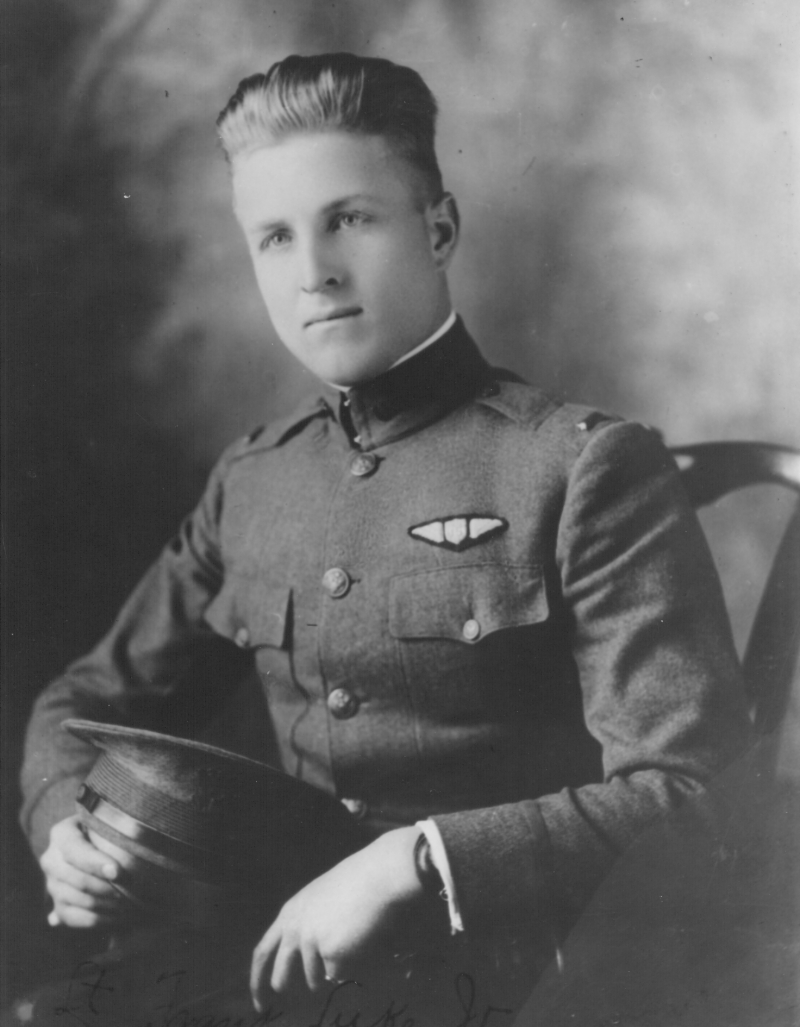
Photo: https://www.airforcemag.com/ 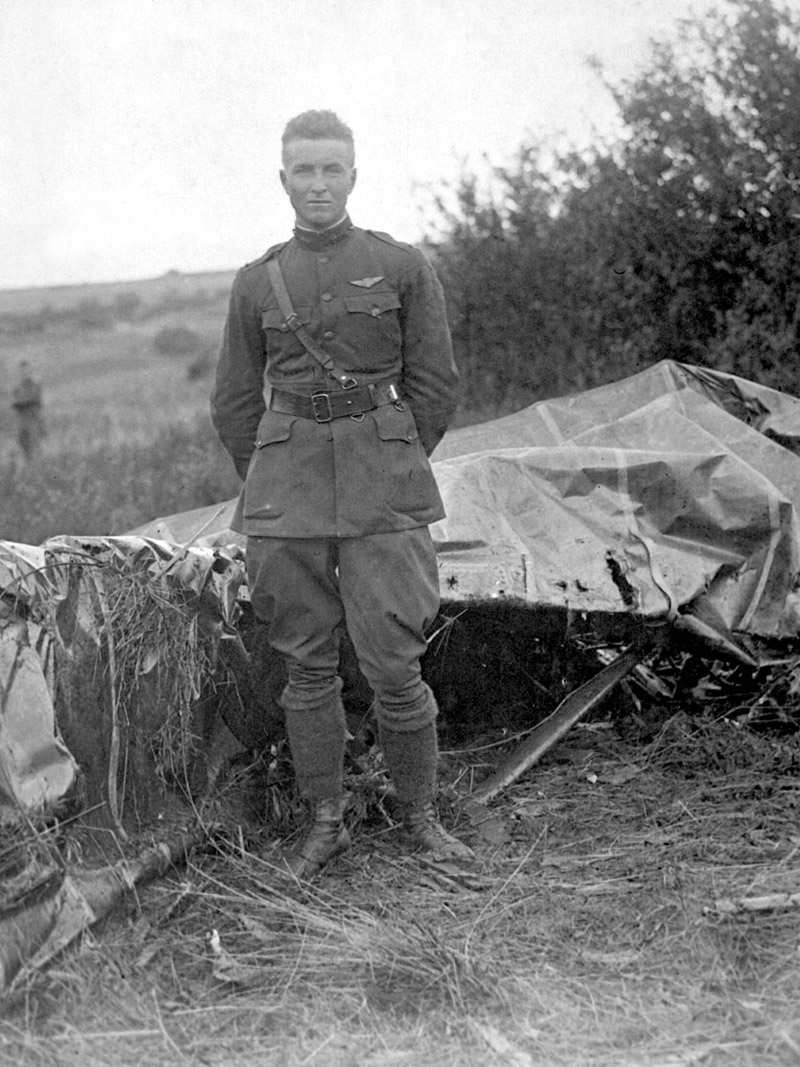
Photo: https://en.wikipedia.org/

















